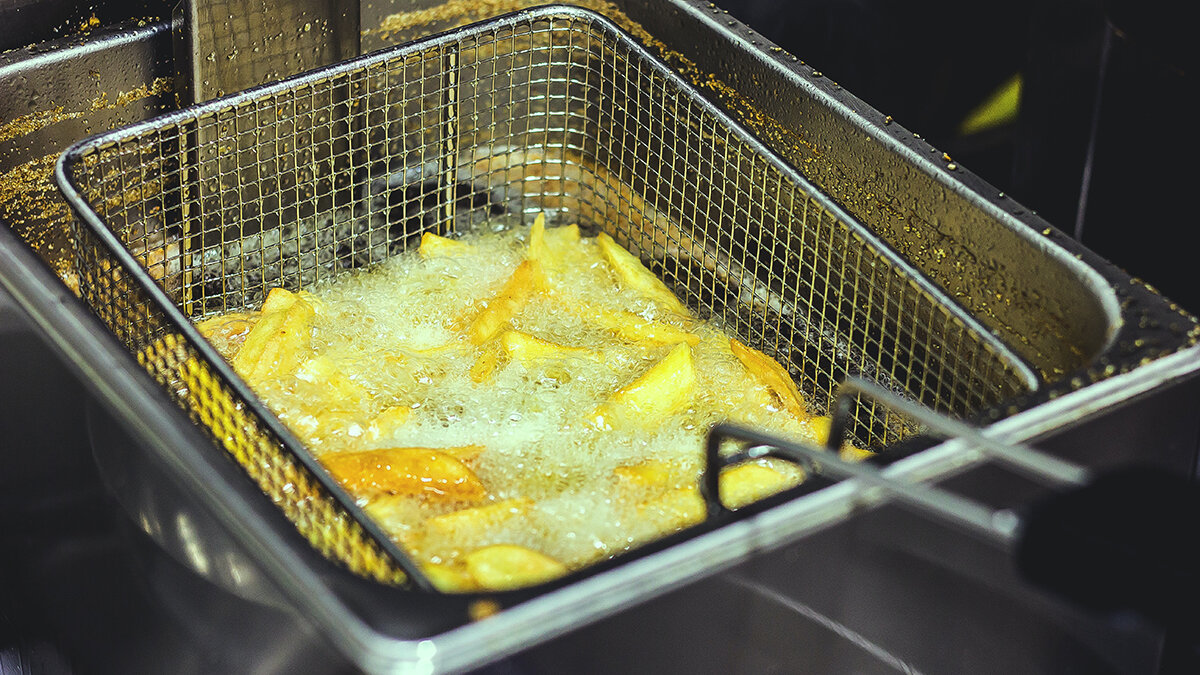What’s Wrong with Oil?
I get this question a lot in my classes when I mention that I don’t cook with oil.
The short answer is: oil is a processed food full of fat and calories and not much else.
We all agree that sugar is a processed food, full of “empty calories.” Well, so is oil. Actually, oil has more empty calories than sugar. Two tablespoons of olive oil contain 238 calories, while two tablespoons of sugar have 93.
Leaving the good stuff behind
It takes about 80 small olives to make two tablespoons of olive oil (1). When those 80 olives are crushed and squeezed to give up their oil, many vital nutrients are thrown away, including fiber, vitamins, and minerals. The same is true of flaxseed oil: when flaxseeds are turned into oil, we forfeit their fiber, protein, and lignans, which are the phytochemicals that have been shown to reduce the risk of heart disease.
How oil is made
There is no cooking oil found in nature. All oils are manufactured. Except for very high-end oils, the manufacturing process involves harsh chemicals and extreme temperatures to produce the clear, odorless oils we see on grocery shelves. Petroleum solvents are used to extract oil from seeds, sodium hydroxide (also used to manufacture soaps and detergents) is used to clean the oil, a bleaching agent lightens the color, then steam injection removes the oil’s and chemicals’ odors.
Check out this video to watch how canola oil is made.
Don’t we need fat to survive?
Yes, our bodies need an intake of fat for energy and also to help us absorb critical vitamins, build cell walls, and supply essential fatty acids our bodies cannot make themselves.
But this doesn’t mean we have to use oil. We can get fat from whole foods that naturally contain fat, including many plant foods like nuts, seeds, avocados, and olives.
What about Omega 3’s?
Omega-3 and omega-6 fats are the two types of fat our bodies cannot make on their own. The recommended daily intake for omega-3’s is 1.6 grams for adult men and 1.1 grams for adult women.
Luckily a number of plant foods contain omega-3’s. A tablespoon of flaxseed meal contains 2.35 grams of omega-3, more than the recommended daily level.
For more on omega-3’s see the National Institute of Health’s reference sheet here.
Aren’t monounsaturated fats like olive oil okay?
Certainly mono- and polyunsaturated fats are better than trans and saturated fats. But many studies have linked increased intake of even monounsaturated fats (i.e., olive oil) with increased risk of heart disease. Meals rich in olive oil have also been shown to impede arterial dilation in a manner similar to other oils.
Olive oils, especially those made with less harsh methods than conventional manufacturing processes, contain some beneficial nutrients. But they are not unique. Many foods are rich in these same compounds. All plant foods, for example, contain polyphenols and plant sterols. Spices are especially rich in these nutrients and contain far more than olive oil does. Another compound cited is oleic acid. Nuts and seeds contain this healthy acid, and they are lower in calories and higher in protein and fiber than oil.
For more research-based facts about olive oil, see this Pritikin article.
What about coconut oil?
Despite the hype about coconut oil, it is a processed food that is 100% fat, and it’s the highest in saturated fat of all vegetable oils. The American Heart Association says that “Decades of sound science have proven [saturated fat] can raise your ‘bad’ cholesterol and put you at higher risk for heart disease.”
What about the “medium chain triglycerides” in coconut oil? It’s true that these fats get oxidized more quickly and are less fattening than other fatty acids, but these triglycerides make up only a small part of coconut oil.
For more on coconut oil, see this article by the Harvard School of Public Health.
Prevention and treatment of cardiovascular disease
Multiple research studies have found that the fats in oils (all oils) are harmful to the inner lining of our arteries, called the endothelium. Once the endothelium is impaired, arteries can become inflamed and narrowed, constricting blood flow. Studies have shown that restriction of blood flow is a strong risk factor for cardiovascular disease. See a research summary here.
This Ted Talk by Dr. Caldwell Esselstyn includes a very helpful section on how eating oil is connected with endothelial dysfunction and cardiovascular disease.
Don’t many recipes depend on oil?
You would think the answer is yes by looking at most recipes. But you can make lots of dishes without oil, and in many cases it’s hard to taste the difference. Sometimes leaving oil out of a recipe is easy, like the oil in soups. Sometimes it’s trickier, like in baking and salad dressings, and it’s best to look for recipes that have been created and tested without the use of oil.
Check out my recipes for oil-free salad dressings.
So, what do you use instead of oil?
I have two blogs that discuss this. One is an overall guide for What to Substitute for Oil in All Kinds of Dishes, and another focuses on the details of What is water-sauté?

